7 start with B start with B
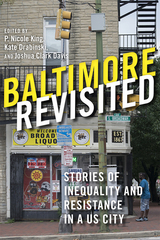
To help untangle these apparent paradoxes, the editors of Baltimore Revisited have assembled a collection of over thirty experts from inside and outside academia. Together, they reveal that Baltimore has been ground zero for a slew of neoliberal policies, a place where inequality has increased as corporate interests have eagerly privatized public goods and services to maximize profits. But they also uncover how community members resist and reveal a long tradition of Baltimoreans who have fought for social justice.
The essays in this collection take readers on a tour through the city’s diverse neighborhoods, from the Lumbee Indian community in East Baltimore to the crusade for environmental justice in South Baltimore. Baltimore Revisited examines the city’s past, reflects upon the city’s present, and envisions the city’s future.
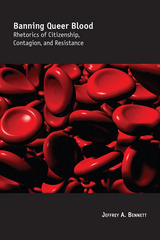
In Banning Queer Blood, Jeffrey Bennett frames blood donation as a performance of civic identity closely linked to the meaning of citizenship. However, with the advent of HIV came the notion of blood donation as a potentially dangerous process. Bennett argues that the Food and Drug Administration, by employing images that specifically depict gay men as contagious, has categorized gay men as a menace to the nation. The FDA's ban on blood donation by gay men served to propagate the social misconceptions about gay men that continue to circulate within both the straight and LGBT/Queer communities.
Bennett explores the role of scientific research cited by these banned-blood policies and its disquieting relationship to government agencies, including the FDA. Bennett draws parallels between the FDA's position on homosexuality and the historical precedents of discrimination by government agencies against racial minorities. The author concludes by describing the resistance posed by queer donors, who either lie in order to donate blood or protest discrimination at donation sites, and by calling for these prejudiced policies to be abolished.
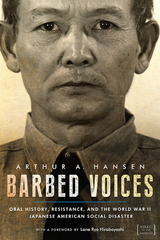
What historically was benignly termed the “Japanese American Evacuation” was in fact a social disaster, which, unlike a natural disaster, is man-made. Examining the emotional implications of targeted systemic incarceration, Hansen highlights the psychological traumas that transformed Japanese American identity and culture for generations after the war. While many accounts of Japanese American incarceration rely heavily on government documents and analytic texts, Hansen’s focus on first-person Nikkei testimonies gathered through powerful oral history interviews gives expression to the resistance to this social disaster.
Analyzing the evolving historical memory of the effects of wartime incarceration, Barbed Voices presents a new scholarly framework of enduring value. It will be of interest to students and scholars of oral history, US history, public history, and ethnic studies as well as the general public interested in the WWII experience and civil rights.
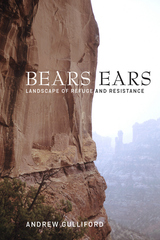
Gulliford’s engaging narrative explains prehistoric Pueblo villages and cliff dwellings, Navajo and Ute history, stories of Mormon families who arrived by wagon train in 1880, impacts of the Atomic Age, uranium mining, and the pothunting and looting of Native graves that inspired the passage of the Antiquities Act over a century ago. The book describes how the national monument came about and its deep significance to five native tribes.
Bears Ears National Monument is a bellwether for public land issues in the American West. Its recognition will be relevant for years to come.

Truth, reason, and objectivity--can we survive without them? What happens to law, science, and the pursuit of social justice when such ideas and ideals are rejected? These questions are at the heart of the controversies between traditionalists and "postmodernists" that Barbara Herrnstein Smith examines in her wide-ranging book, which also offers an original perspective on the perennial--perhaps eternal--clash of belief and skepticism, on our need for intellectual stability and our experience of its inevitable disruption.
Focusing on the mutually frustrating impasses to which these controversies often lead and on the charges--"absurdity," "irrationalism," "complicity," "blindness," "stubbornness"--that typically accompany them, Smith stresses our tendency to give self-flattering reasons for our own beliefs and to discount or demonize the motives of those who disagree with us. Her account of the resulting cognitive and rhetorical dynamics of intellectual conflict draws on recent research and theory in evolutionary biology, neuroscience, developmental psychology, and the history and sociology of science, as well as on contemporary philosophy and language theory.
Smith's analyses take her into important ongoing debates over the possibility of an objective grounding of legal and political judgments, the continuing value of Enlightenment rationalism, significant challenges to dominant ideas of scientific truth, and proper responses to denials of the factuality of the Holocaust. As she explores these and other controversies, Smith develops fresh ways to understand their motives and energies, and more positive ways to see the operations of intellectual conflict more generally.
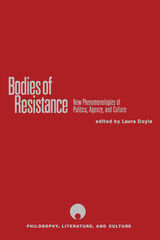
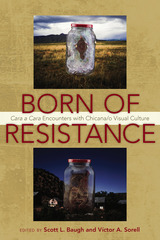
If Chicana/o culture was born of resistance amid assimilation and nationalistic forces, how has it evolved into the twenty-first century? This groundbreaking volume redresses the central idea of resistance in Chicana/o visual cultural expression through nine clustered discussions, each coordinating scholarly, critical, curatorial, and historical contextualizations alongside artist statements and interviews. Landmark artistic works—illustrations, paintings, sculpture, photography, film, and television—anchor each section. Contributors include David Avalos, Mel Casas, Ester Hernández, Nicholas Herrera, Luis Jiménez, Ellen Landis, Yolanda López, Richard Lou, Delilah Montoya, Laura Pérez, Lourdes Portillo, Luis Tapia, Chuy Treviño, Willie Varela, Kathy Vargas, René Yañez, Yvonne Yarbro-Bejarano, and more. Cara a cara, face-to-face, encounters across the collection reveal the varied richness of resistant strategies, movidas, as they position crucial terms of debate surrounding resistance, including subversion, oppression, affirmation, and identification.
The essays in the collection represent a wide array of perspectives on Chicana/o visual culture. Editors Scott L. Baugh and Víctor A. Sorell have curated a dialog among the many voices, creating an important new volume that redefines the role of resistance in Chicana/o visual arts and cultural expression.
READERS
Browse our collection.
PUBLISHERS
See BiblioVault's publisher services.
STUDENT SERVICES
Files for college accessibility offices.
UChicago Accessibility Resources
home | accessibility | search | about | contact us
BiblioVault ® 2001 - 2024
The University of Chicago Press









